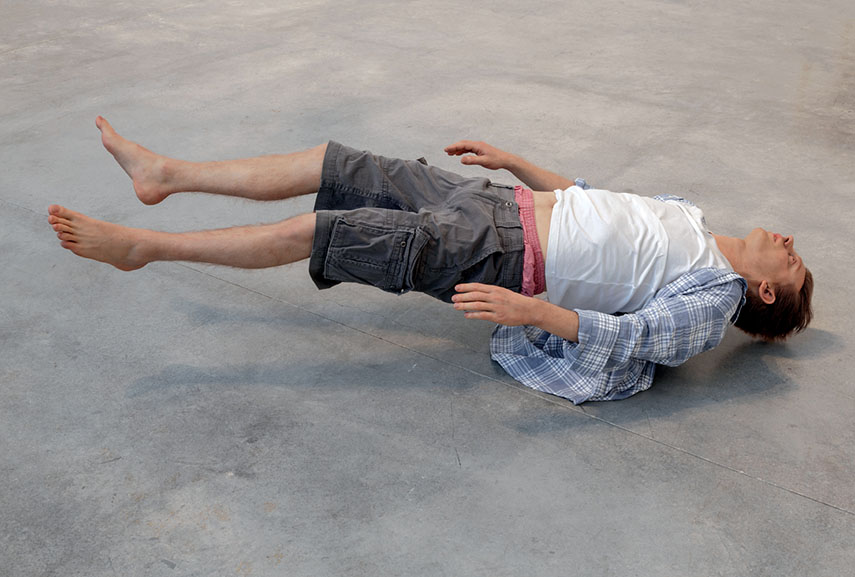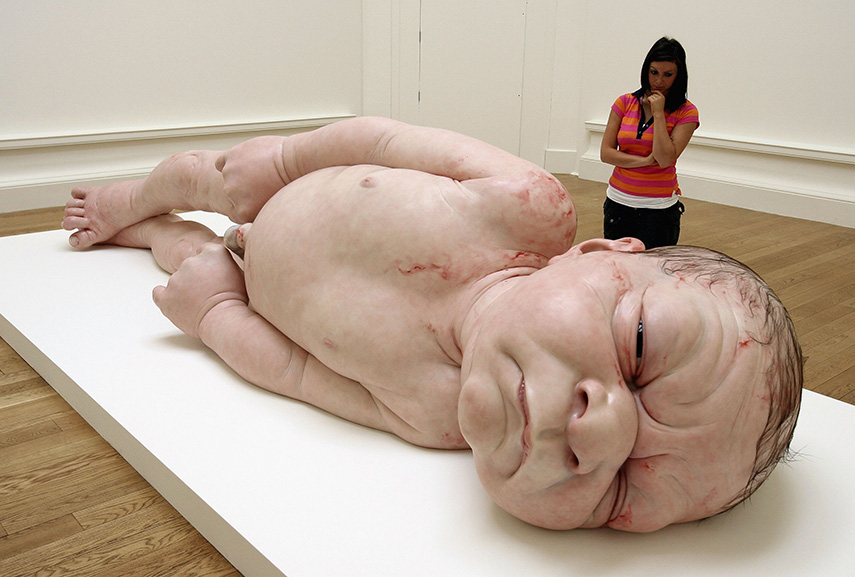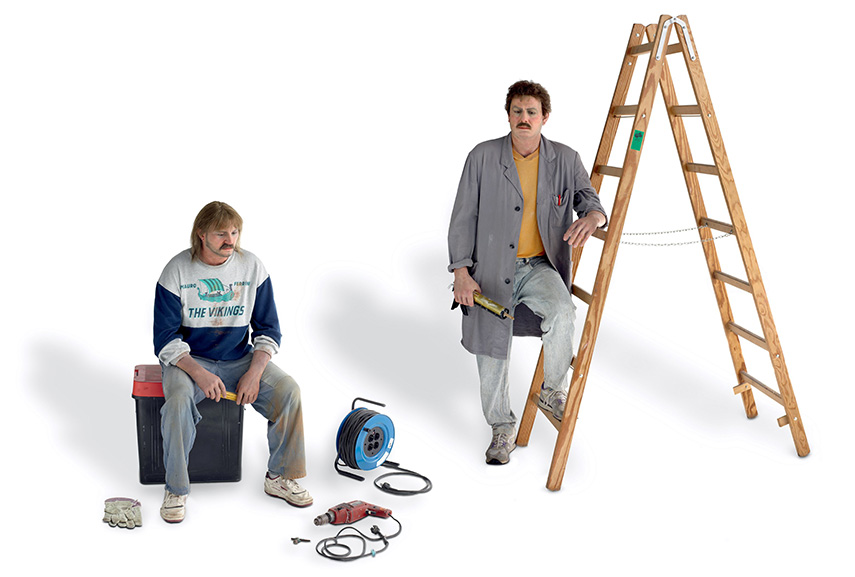[ad_1]
How has the hyperrealist sculpture developed over the past fifty years? Is it as successful as hyperrealism in painting?
For Kunsthal in Rotterdam, the two deserve equal recognition, and following the success of their 2017 exhibition dedicated to the latter, they are now honoring three-dimensional works, and a unique selection of them too!
The show gathers 35 artworks by 28 artists, including early American pioneers and contemporary masters, shown in the Netherlands for the first time in this setting.

Toward the Lifelike
In the 1960s and 70s, a number of artists, namely sculptors, shifted their practice toward creating figurative art that as vivid and lifelike as possible. Characterized by varied, and numerous perspectives, they examined and ultimately reproduced the human figure, provoking strong reaction from visitors by having them stand face-to-face with their works.
In this manner, these hyperrealist sculptures posed questions about the extent of the manipulation of human beings, as well as their identity in general. With the question How do we see ourselves and others, Kunsthal joins the conversation on the topic, at the time of selfie culture and strong social media presence.

Across the Four Themes
Divided into four sections, the Hyperrealism Sculpture exhibition demonstrates the way our perspective on the human body is subject to constant change.
In Doppelgangers, artworks from the 1960s by legendary pioneers like Duane Hanson and John DeAndrea show the trend of creating life-size sculptures through extremely laborious, complex procedures and innovative materials. Also included are the hyperrealist nudes of sometimes-controversial Paul McCarthy and French artist Daniel Firman.
Artists from the 1990s, such as Ron Mueck, Marc Sijan and Sam Jinks, are featured within the Dimensions theme, which celebrates their decision to drastically enlarge or reduce the dimension of the figures. A highlight of the section is Mueck’s 2006 piece A Girl, representing a newborn baby.
The distorted perspectives of Evan Penny and Patricia Piccinini, among others, are presented in the Deformations, joined by the works of Tony Matelli and Berlinde de Bruyckere.
Finally, the Body Parts theme, as you’ll guess, we have artists working in the last couple of decades and who have focused their attention on specific body parts – here, we find Maurizio Cattelan’s disconnected arms and Robert Gober’s severed lower part of a hairy leg, both projecting from the wall. Make sure you also don’t miss the life-sized heads by John Davies and the almost-surrealist human parts by Peter Land.

Hyperrealism Sculpture at Kunsthal Rotterdam
Gathered in one place like this, these hyperrealist sculptures convey important messages, at times disturbing, but also emotional and with a touch of humor. Together, they explore the important themes of the human existence at large, asking for reflection and self-reflection.
Hyperrealism Sculpture opens on March 10th at Kunsthal in Rotterdam, The Netherlands, and will stay on view through July 1st, 2018.
Featured image: Sam Jinks – Untitled (Kneeling Woman), 2015. Silicone, pigment, resin, human hair, 30 x 72 x 28 cm. Collection of the artist. All images courtesy Kunsthal Rotterdam.
[ad_2]
Source link
